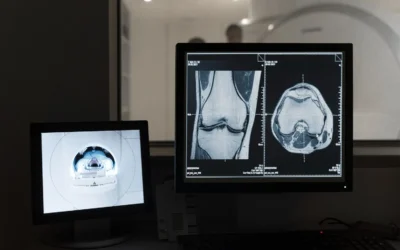Colorectal cancer (CRC) remains a formidable adversary in the fight against cancer, claiming nearly 53,000 lives in the United States in 2022 alone. As the second leading cause of cancer-related deaths, CRC presents a significant public health challenge. However, a ray of hope emerges with the development of a new blood-based colorectal cancer screening test, offering a potentially more accessible option for those hesitant to undergo traditional invasive procedures.
Table of Contents
The Promise of Cell-Free DNA Testing
At the heart of this innovative approach lies cell-free DNA (cfDNA) technology, a cutting-edge method that detects tumor-derived DNA fragments circulating in the bloodstream. This non-invasive technique requires only a simple blood draw, making it far less daunting than a colonoscopy. By lowering the barrier to entry for CRC screening, this test has the potential to significantly increase screening rates, potentially leading to earlier detection and improved outcomes for countless individuals.
The cfDNA test employs sophisticated algorithms to analyze DNA patterns, searching for specific genetic mutations and methylation changes associated with CRC. This advanced detection method represents a significant leap forward in our ability to identify cancer at its earliest stages, when treatment is most effective.
Study Findings: Unveiling Strengths and Limitations
A comprehensive study involving 7,861 participants recently evaluated the performance of the cfDNA test against the gold standard of colonoscopy. The results revealed both promising aspects and areas for further refinement.
The test demonstrated an impressive 83.1% overall sensitivity for detecting CRC across all stages. Perhaps most encouragingly, it achieved a 100% detection rate for Stage II, III, and IV cancers. However, its performance in detecting Stage I cancers, including incompletely staged malignant polyps, was less robust at 55% sensitivity. This highlights the need for continued improvement in early-stage detection capabilities.
In terms of specificity, the test showed strong performance with an 89.6% rate, indicating a relatively low false-positive rate. However, an interesting age-related trend emerged: specificity declined in older participants, likely due to age-related methylation changes. For those aged 45-59, the specificity stood at a commendable 93.4%, while it dropped to 81.3% for participants aged 70 and older.
One area of concern is the test’s limited sensitivity for advanced precancerous lesions. Only 13.2% of advanced adenomas and sessile serrated lesions were detected, underscoring a potential weakness in cancer prevention capabilities.
Comparing Non-Invasive CRC Screening Options
When evaluating the cfDNA test against other non-invasive screening methods, several factors come into play. The blood-based test offers unparalleled convenience, easily integrating into routine medical visits. However, stool-based DNA-FIT tests like Cologuard demonstrate higher sensitivity for Stage I cancers, with rates exceeding 85% compared to the cfDNA test’s 55%.In terms of detecting precancerous lesions, CT colonography and stool-based tests generally outperform the cfDNA test in identifying advanced adenomas. It’s worth noting that most non-invasive options, including the cfDNA test, require more frequent screening compared to colonoscopy.
The Enduring Importance of Colonoscopy
While the cfDNA test and other non-invasive methods offer valuable screening alternatives, colonoscopy remains the gold standard for CRC detection and prevention. Its ability to provide direct visualization of the entire colon, coupled with the capacity for immediate intervention to remove precancerous polyps, makes it an invaluable tool in the fight against CRC.
Colonoscopy’s comprehensive assessment can detect smaller lesions that may be missed by other screening methods, providing a level of thoroughness that is currently unmatched by non-invasive alternatives.
Conclusion: A Promising Step Forward
The development of the blood-based cfDNA test for CRC screening represents a significant advancement in cancer detection technology. While it offers a convenient and less invasive option, its limitations in detecting early-stage cancers and precancerous lesions suggest that it should complement, rather than replace, existing screening methods.
As research continues and technologies improve, the ideal scenario may involve a multi-pronged approach to CRC screening. This could include utilizing blood-based tests to encourage wider participation in screening programs, following up positive results with more sensitive methods like stool-based DNA tests or imaging, and reserving colonoscopy for definitive diagnosis and intervention.
By combining these approaches, we can work towards more comprehensive CRC prevention and early detection strategies. The cfDNA test represents a promising step forward in our ongoing battle against colorectal cancer, offering new hope for improved patient outcomes and, ultimately, saving more lives from this preventable disease.
References
- Luo, H., Zhao, Q., Wei, W., et al. (2018). Circulating tumor DNA methylation profiles enable early diagnosis, prognosis prediction, and screening for colorectal cancer. Science Translational Medicine, 10(466), eaax7533. https://doi.org/10.1126/scitranslmed.aax7533
- American Cancer Society. (2024). Colorectal Cancer Guideline. https://www.cancer.org/cancer/types/colon-rectal-cancer/detection-diagnosis-staging/acs-recommendations.html
- U.S. Preventive Services Task Force. (2021). Screening for Colorectal Cancer: US Preventive Services Task Force Recommendation Statement. JAMA, 325(19), 1965-1977. https://doi.org/10.1001/jama.2021.6238





0 Comments